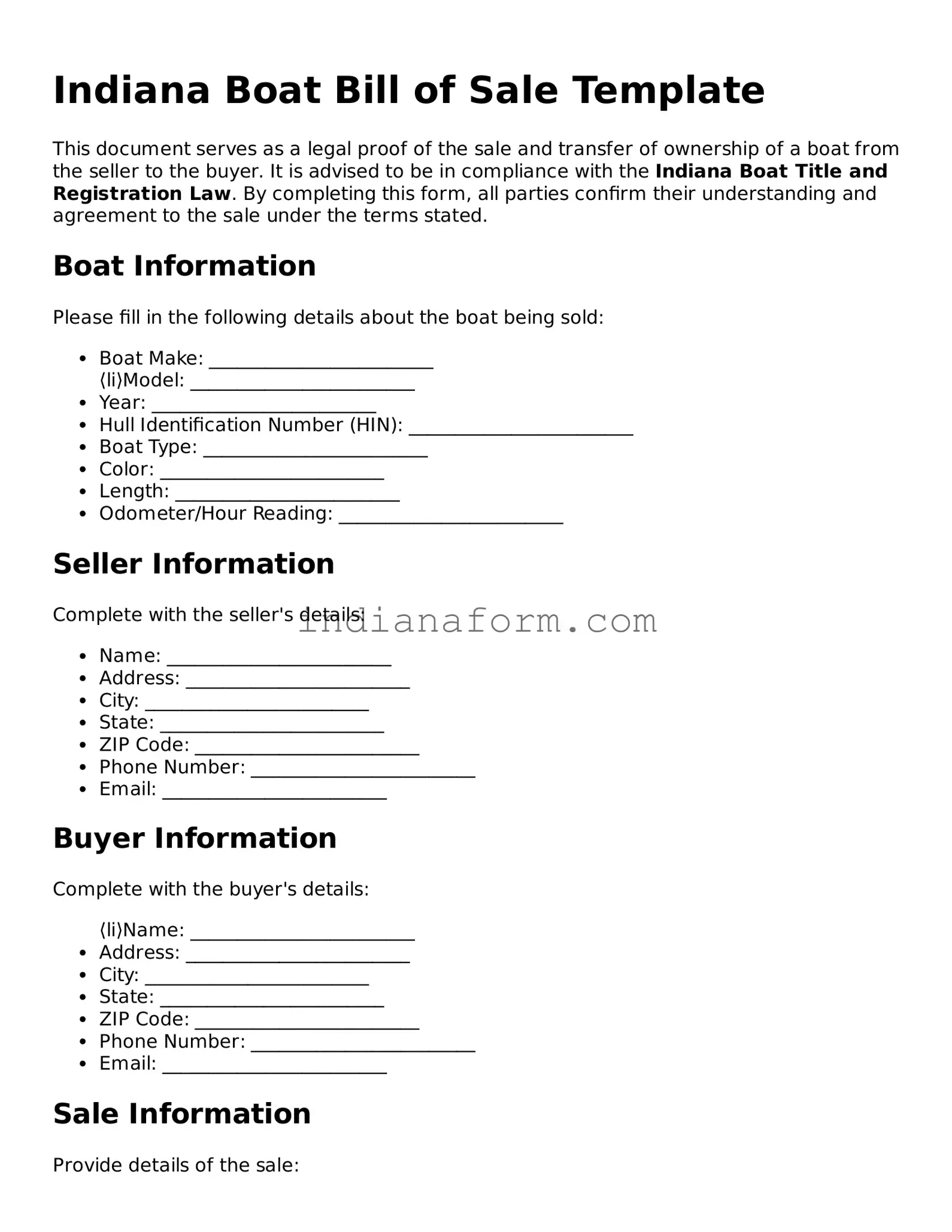What is a Boat Bill of Sale form in Indiana?
A Boat Bill of Sale form in Indiana is a legal document that records the sale and transfer of ownership of a boat from a seller to a buyer. It acts as a proof of purchase and includes details such as the make, model, year of the boat, the sale price, and the names and signatures of the parties involved. This document is crucial for the buyer's registration and titling process of the boat with the Indiana Bureau of Motor Vehicles.
Is a Boat Bill of Sale form legally required in Indiana for the sale of a boat?
Yes, when selling or buying a boat in Indiana, it's important to complete a Boat Bill of Sale form. This form not only provides proof of the sale but also is necessary for the buyer to register the boat. The state of Indiana requires this documentation for the legal transfer of ownership and to ensure all transactions are recorded and legitimate.
What information is typically included in an Indiana Boat Bill of Sale form?
An Indiana Boat Bill of Sale form typically includes:
- The date of the sale
- Names and addresses of the buyer and seller
- A detailed description of the boat (including make, model, year, and Hull Identification Number)
- The sale price
- Any warranty information or "as is" status
- Signatures of both the buyer and seller
This comprehensive information ensures a clear understanding of the transaction's terms for all parties.
Can a Boat Bill of Sale be used for registrations and titling in Indiana?
Yes, the Boat Bill of Sale is an essential document for the buyer when registering and titling the boat in Indiana. This document serves as evidence of the boat's legal transfer of ownership from the seller to the buyer. To successfully register and title the boat, the buyer must submit this form along with any other required documentation to the Indiana Bureau of Motor Vehicles.
Do both the buyer and the seller need to sign the Indiana Boat Bill of Sale form?
Absolutely, for the Boat Bill of Sale form to be valid and legally binding in Indiana, both the buyer and the seller must sign the form. These signatures verify that both parties agree to the terms of the sale, including the sale price and condition of the boat. It's also recommended to have the signatures notarized to add an extra layer of authenticity and protection for both parties.
What steps should be taken after completing a Boat Bill of Sale in Indiana?
After completing the Boat Bill of Sale form in Indiana, the buyer should take several steps:
- Keep a copy of the Bill of Sale for personal records.
- Use the Bill of Sale to register and title the boat under their name at the Indiana Bureau of Motor Vehicles. This may require additional documentation, such as proof of sales tax payment and a title transfer form if applicable.
- Ensure the boat meets all Indiana boating laws and regulations, including safety equipment and operation guidelines.
Completing these steps ensures the boat is legally documented and ready for use on Indiana’s waterways.

